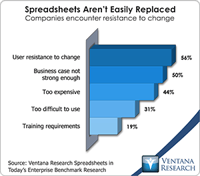
One of the charitable causes to which I devote time puts on an annual vintage car show. The Concours d’Élegance dates back to 17th century France, when wealthy aristocrats gathered with judges on a field to determine who had the best carriages and the most beautiful horsepower. Our event serves as the centerpiece of a broader mission to raise money for several charitable organizations. One of my roles is to keep track of the cars entered in the show, and in that capacity I designed an online...
Topics: Planning, Office of Finance, Operational Performance Management (OPM), Reporting, Self-service, Budgeting, dashboard, Analytics, Business Analytics, Business Intelligence, Business Performance Management (BPM), Customer Performance Management (CPM), Data, Financial Performance Management (FPM), Information Applications (IA), Sales Performance Management (SPM), Supply Chain Performance Management (SCPM), Workforce Performance Management (WPM), Financial Performance Management, Microsoft Excel, Spreadsheets









